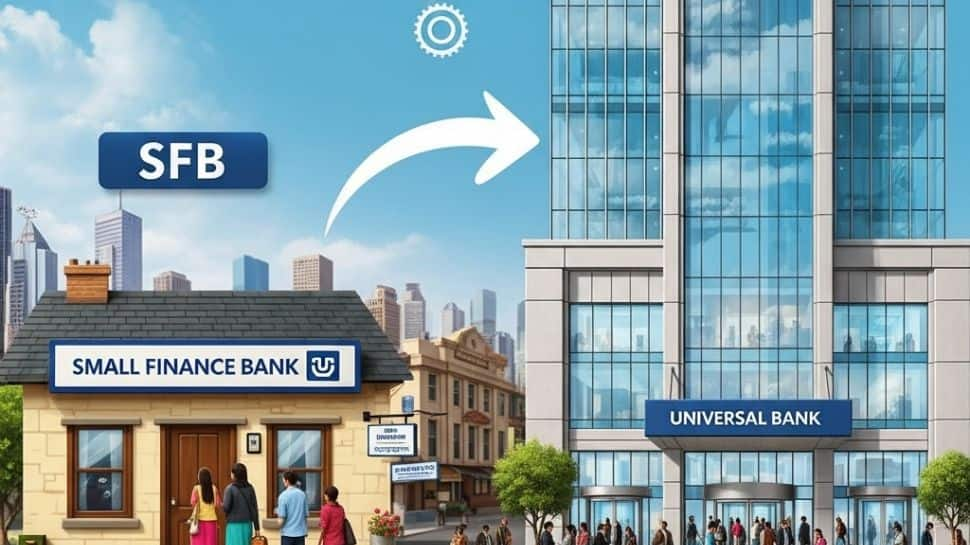From Small Finance to Big Player: Understanding Universal Banking Licenses in the Philippines & RBI Guidelines

The Philippine banking landscape is constantly evolving, with Small Finance Banks (SFBs) playing a crucial role in financial inclusion. But what happens when an SFB aims for bigger things? The answer often lies in securing a Universal Banking License. This transition represents a significant leap forward, allowing SFBs to expand their services and reach a broader customer base. This article delves into what a Universal Banking License entails, the requirements set by the Bangko Sentral ng Pilipinas (BSP) – mirroring the Reserve Bank of India (RBI) norms – and the eligibility criteria for SFBs looking to upgrade their status.
What is a Universal Banking License?
Essentially, a Universal Banking License grants a bank the authority to offer a full spectrum of financial services. Unlike SFBs, which typically focus on specific niches like micro-lending or serving underserved communities, universal banks can engage in a much wider array of activities. These include:
- Commercial Banking: Accepting deposits, providing loans, and facilitating payments.
- Investment Banking: Underwriting securities, advising on mergers and acquisitions, and managing assets.
- Retail Banking: Offering consumer loans, credit cards, and wealth management services.
- International Banking: Dealing in foreign exchange and providing cross-border financial services.
This expanded scope allows universal banks to cater to a diverse clientele, from individual consumers to large corporations, and to generate revenue from multiple sources.
RBI Norms & Philippine Adaptation: A Blueprint for Universal Bank Conversion
The Reserve Bank of India's (RBI) guidelines on converting SFBs into universal banks provide a valuable framework, and the BSP has largely adopted similar principles. Key considerations include:
- Minimum Capital Requirements: A significantly higher capital base is required to absorb the increased risks associated with broader operations. The specific amount is regularly reviewed and updated by the BSP.
- Corporate Governance: Stringent corporate governance norms are implemented to ensure transparency, accountability, and sound risk management practices.
- Financial Soundness: The SFB must demonstrate a strong track record of profitability, asset quality, and capital adequacy.
- Management Expertise: The bank needs a competent and experienced management team capable of handling the complexities of a universal banking operation.
- Branch Network Expansion: A wider branch network is generally expected to serve a larger customer base.
The BSP assesses each application on a case-by-case basis, considering the SFB's financial performance, business plan, and overall contribution to the Philippine economy.
Eligibility Criteria for SFBs in the Philippines
For an SFB to be considered for a Universal Banking License, it typically needs to meet the following criteria:
- Sustained Profitability: A consistent record of profitability over a defined period (typically 3-5 years).
- Strong Asset Quality: Low levels of non-performing assets (NPAs) and a well-managed loan portfolio.
- Adequate Capital Base: Meeting the BSP's minimum capital requirements for universal banks, which are substantially higher than those for SFBs.
- Robust Risk Management Framework: A comprehensive risk management framework that addresses credit risk, market risk, operational risk, and liquidity risk.
- Sound Corporate Governance: A board of directors with relevant expertise and a commitment to ethical business practices.
The Future of Philippine Banking
The transition of SFBs to universal banks is a positive development for the Philippine banking sector. It encourages competition, promotes financial innovation, and expands access to financial services for businesses and individuals alike. As the Philippine economy continues to grow, the role of universal banks will become increasingly important in supporting sustainable development and inclusive growth. The BSP’s careful oversight and adherence to international best practices will be crucial in ensuring the stability and integrity of the banking system.





